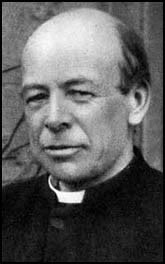A Quote by Cormac McCarthy
She was gone and the coldness of it was her final gift.
Related Quotes
She thought of the hardness and the coldness she had cultivated over those years and wondered if they were the mask she wore or if the mask had become her self. If the longing inside her for kindness, for warmth, for compassion, was the last seed of hope for her, she didn't know how to nurture it or if it could live.
I am standing on the seashore. A ship spreads her white sails to the morning breeze and starts for the ocean. I stand watching her until she fades on the horizon, and someone at my side says, She is gone. Gone where? The loss of sight is in me, not in her. Just at the moment when someone says, She is gone, there are others who are watching her coming. Other voices take up the glad shout, Here she comes! That is dying.
In a way, her strangeness, her naiveté, her craving for the other half of her equation was the consequence of an idle imagination. Had she paints, or clay, or knew the discipline of the dance, or strings, had she anything to engage her tremendous curiosity and her gift for metaphor, she might have exchanged the restlessness and preoccupation with whim for an activity that provided her with all she yearned for. And like an artist with no art form, she became dangerous.
Emma dropped the paper. Her first impression was of a weak feeling in her stomach and in her knees; then of blind guilt, of unreality, of coldness, of fear; then she wished that it were already the next day. Immediately afterwards she realized that that wish was futile because the death of her father was the only thing that had happened in the world, and it would go on happening endlessly.
Sophie has a gift," she said. "She has the Sight. She can see what others do not. In her old life she often wondered if she was mad. Now she knows that she is not mad but special. There, she was only a parlor maid, who would likely have lost her position once her looks had faded. Now she is a valued member of our household, a gifted girl with much to contribute.
But as the scissors snip-snapped through her hair and the razor shaved the rest, she realized with a sudden awful panic that she could no longer recall anything from the past. I cannot remember, she whispered to herself. I cannot remember. She's been shorn of memory as brutally as she'd been shorn of her hair, without permission, without reason... Gone, all gone, she thought again wildly, no longer even sure what was gone, what she was mourning.
If she took Po as her husband, she would be making promises about a future she couldn't yet see. For once she became his wife, she would be his forever. And, no matter how much freedom Po gave her, she would always know that it was a gift. Her freedom would be not be her own; it would be Po's to give or to withhold. That he never would withhold it made no difference. If it did not come from her, it was not really hers.






































